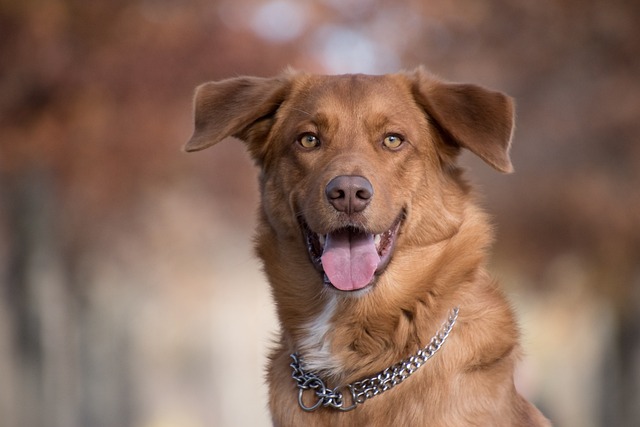
Precautions for raising a dog when the temperature suddenly drops
As the cold wind howls outside the window and the temperature plummets overnight, while you wrap yourself in a thick cotton coat,
When the dog at home suddenly makes those rapid and hoarse coughs, it is like a fine needle that instantly hurts the owner's heart. Dogs can't speak, and they can't clearly tell us where they are uncomfortable in their bodies. Coughing, as a "distress signal" sent by the respiratory tract, not only indicates health problems, but also makes every owner worried. In-depth understanding of the symptoms and treatment methods of dog cough is not only the learning of professional knowledge, but also the embodiment of our endless care for fur children.
The symptoms of dog cough are diverse and complex, and there are subtle but critical differences in coughs caused by different causes. The most common is dry cough, which is short and crisp, as if something is stuck in the throat, and the dog will frequently make throat-clearing movements. This dry cough is more common in cases where the trachea is irritated, such as inhalation of dust, smoke, or infection with kennel cough virus. Kennel cough, a disease that makes many dog owners shudder, is highly contagious and easily spreads in places where dogs gather. Dogs infected with kennel cough may have symptoms such as runny nose and listlessness in addition to frequent dry coughs. The lively little guys become listless and lose interest in their favorite toys and snacks.
If the dog's cough is accompanied by wet rales, and the cough sounds turbid and has phlegm, you need to be alert to serious infection of the lungs or bronchus. At this time, the dog may breathe rapidly or even have symptoms of difficulty breathing. The abdomen rises and falls violently with breathing, and the nostrils are wide open, trying to take in every breath of air. Some dogs will vomit after coughing. This is not a gastrointestinal problem, but a reflex vomiting caused by severe coughing irritating the pharynx.
In addition to the symptoms of coughing itself, the overall condition of the dog is also an important basis for judging the condition. Dogs with mild coughs may not be affected by eating, drinking, and playing except for a few coughs occasionally; but dogs with more serious conditions will gradually lose weight, their fur will lose its former luster, and their eyes will become dull. They no longer actively run and play, but always lie quietly in the corner. Even the voice of the owner calling them can hardly arouse their enthusiasm. These subtle changes are silently telling of their physical discomfort and always tug at the owner's heartstrings.
 In the face of dog coughing, accurate judgment of the cause is the prerequisite for effective treatment. This requires professional veterinarians to use detailed interviews, comprehensive physical examinations, and even auxiliary means such as X-rays and blood tests. The veterinarian will carefully ask the dog about the starting time and frequency of coughing, recent diet and activities, whether it has been to places where dogs are densely populated, and other information. Every detail may become a key clue to reveal the cause of the disease. For example, if the dog coughs just after contact with other dogs in the pet hospital or kennel, the possibility of kennel cough is greatly increased; and the sudden cough of elderly dogs also needs to consider heart disease, tracheal collapse and other elderly diseases.
In the face of dog coughing, accurate judgment of the cause is the prerequisite for effective treatment. This requires professional veterinarians to use detailed interviews, comprehensive physical examinations, and even auxiliary means such as X-rays and blood tests. The veterinarian will carefully ask the dog about the starting time and frequency of coughing, recent diet and activities, whether it has been to places where dogs are densely populated, and other information. Every detail may become a key clue to reveal the cause of the disease. For example, if the dog coughs just after contact with other dogs in the pet hospital or kennel, the possibility of kennel cough is greatly increased; and the sudden cough of elderly dogs also needs to consider heart disease, tracheal collapse and other elderly diseases.
Once the cause is determined, the treatment plan will vary from person to person. For cough caused by viral infection, such as canine distemper and canine parainfluenza, there is currently no specific drug, and it mainly relies on supportive treatment. Veterinarians will supplement the dog's nutrition, maintain water and electrolyte balance, and help their bodies fight viruses. At the same time, cough and asthma drugs are used to relieve symptoms and reduce the dog's pain. Bacterial infections require targeted use of antibiotics, and sufficient and adequate medication is the key to completely eliminate bacteria. However, the abuse of antibiotics can lead to bacterial resistance, so you must strictly follow the doctor's advice and cannot stop taking the medicine on your own when you get a slight improvement.
For coughs caused by allergies, finding and staying away from allergens is the top priority. This may require the owner to observe carefully, and even use allergen testing to determine what exactly caused the dog's body to overreact. Is the newly replaced carpet at home full of dust mites? Or is it the pollen flying all over the sky in spring? After determining the allergen, allergic symptoms are controlled by drugs, such as antihistamines, glucocorticoids, etc., to help the dog return to normal. For structural or functional diseases such as tracheal collapse and heart disease, treatment is more complicated and lengthy. It may be necessary to take drugs for a long time to dilate the trachea and improve heart function, and in severe cases, even surgery is required.
During the dog's treatment, the owner's careful care is the warmest "medicine" besides drug treatment. Create a warm, quiet, and fresh air environment for the dog to prevent them from contacting irritants again. Adjust their diet and give them food rich in protein and vitamins to enhance their immunity. Gently accompany the dog every day, comfort them softly, and gently touch them, so that they can feel that the owner's love is never absent. Even if the treatment process is long and difficult, as long as you see the dog gradually regain its vitality and run towards you again with its tail wagging, all your efforts will turn into full joy and relief.
Dog coughing is a silent battle between the owner and the disease. We arm ourselves with professional knowledge, accompany the dog with love and patience, and guard their health on every worried night and in every careful care.

As the cold wind howls outside the window and the temperature plummets overnight, while you wrap yourself in a thick cotton coat,

As you sit at the dining table enjoying a meal, your Teddy’s round eyes fix tightly on the food in your hand, filled with longing,

Dogs frequently scratch, their skin turns red, and their eyes water. These symptoms make many pet owners feel pain in their eyes. When faced with dog allergies, everyone is eager to find an effective solution.

In the quiet of the night, you see the soft dog house that was carefully prepared empty, while your beloved dog curls up in the corner of the wall,

When the once gentle and clingy fur baby suddenly bares its teeth at you or launches unprovoked attacks on other people and animals,

When we look at our pet dogs, those bright eyes carry dependence and trust. However, dogs' eyes are fragile and sensitive, and accidental injuries or sudden illnesses may threaten their vision at any time.